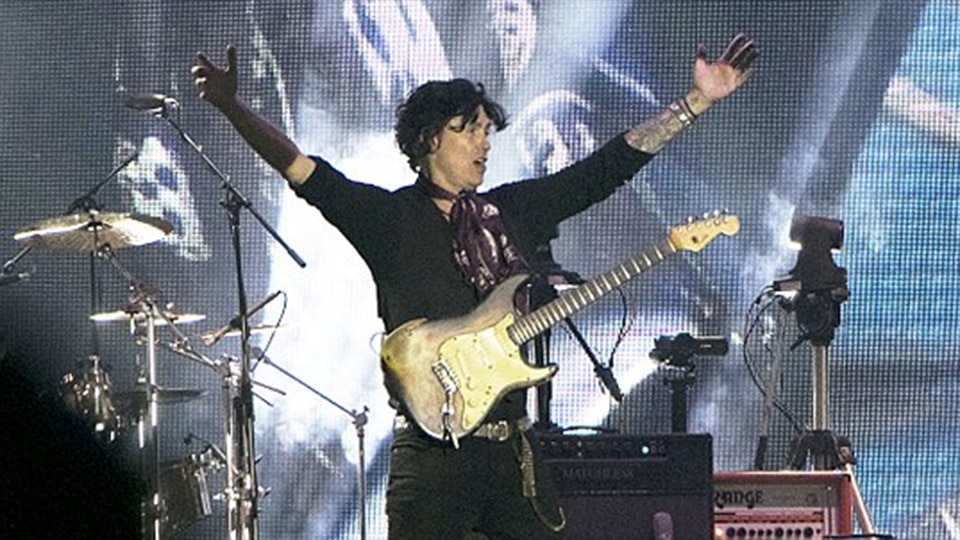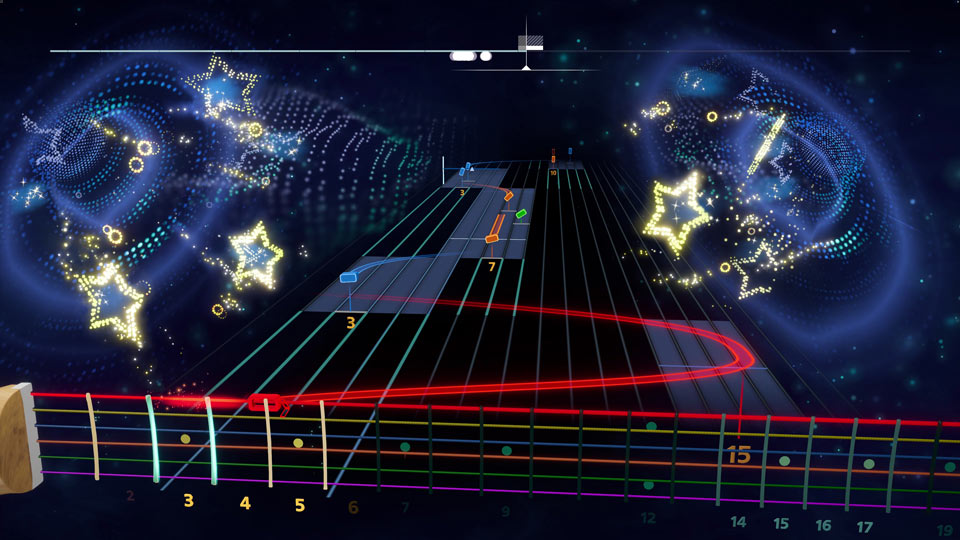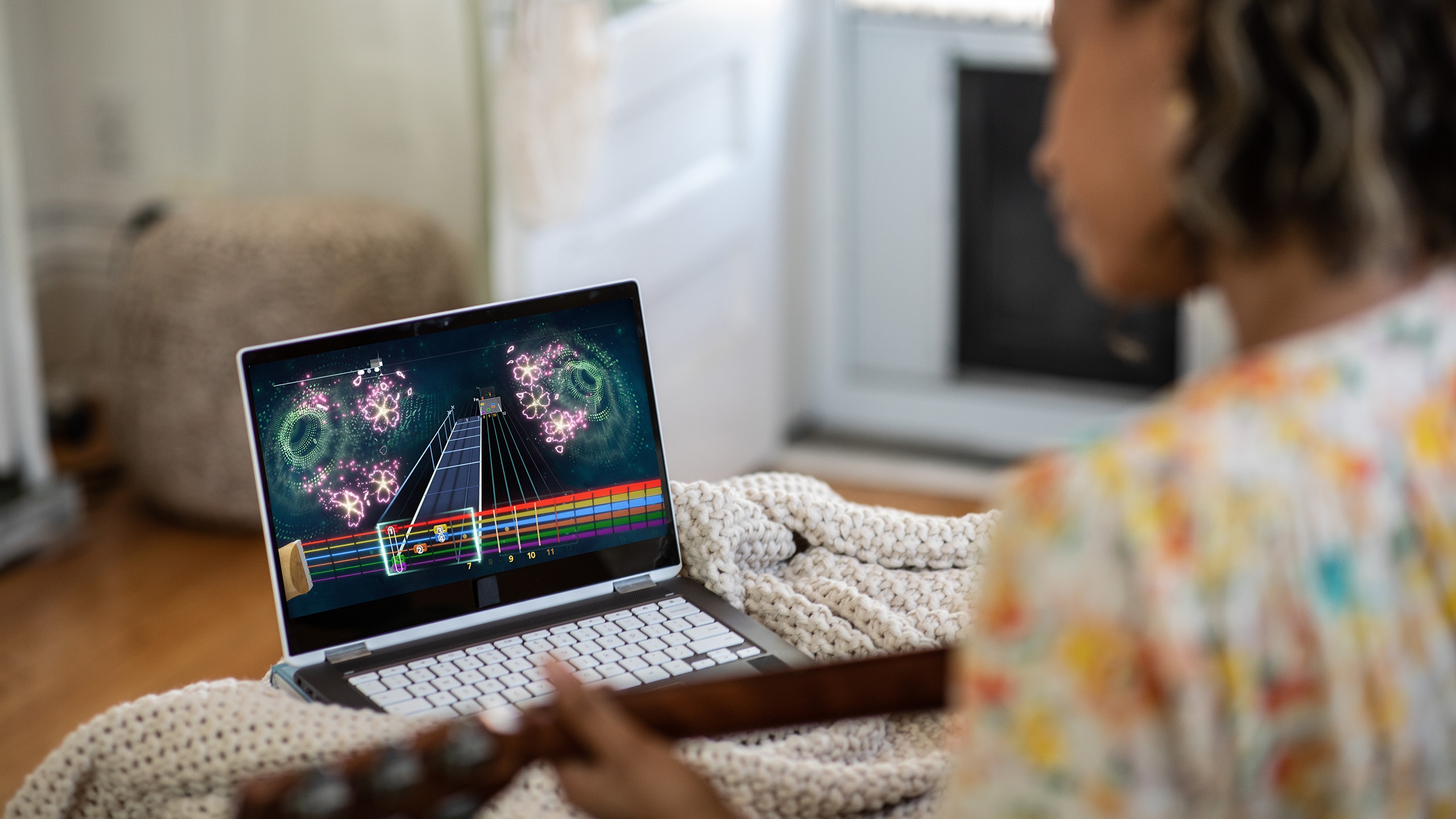In the English-speaking world, "Rock en español" – literally "Spanish-language Rock" – broadly describes any kind of rock music with Spanish vocals. And it's as widely diverse as rock music itself with its seemingly infinite subgenres – hard rock, blues rock, psychedelic, and alternative, to name only a few. Beginning in the 1950s in parallel with American rock and roll, rock en español started with many of the same influences, such as Elvis Presley, Buddy Holly, and Bill Haley. In 1958, rock-and-roll pioneer Ritchie Valens popularized the Mexican-folk song "La Bamba," and saxophonist Danny Flores wrote and recorded his number one hit "Tequila" with The Champs later that year. Rock en español bands followed a similar trajectory to American and British rock, phasing through the 60s British invasion, psychedelic and hard rock of the 70s, and beyond; some bands kept to the formula of American rock, while others fused Latin elements with it to create a whole new sound.
One of the most popular bands to come out of the post-Franco era in mid-70s to early 80s Madrid, Argentine-Spanish rockers Tequila branded their modernized Chuck Berry- and Rolling Stones-inspired rock-and-roll with hits like "Matricula de Honor," "Me Vuelvo Loco," and "Salta!!!" Their 1981 hit "Salta!!!" exhibits the fun, frenzied energy of their 70s material, with more of a post-punk feel and syncopated ska-like beat. Tequila disbanded in 1982 but reformed in 2008 for another decade, reviving their hits in front of audiences old and new.
Formed in 1987 in Mexico City, Caifanes achieved international fame with their unique hybrid of new wave, goth, and progressive rock, fused with Latin-style guitar and percussion. Claiming influences as diverse as King Crimson and The Cure – Adrian Belew of King Crimson produced their third album El Silencio and even made a guest appearance on it – Caifanes are one of a kind. Check out their 1990 hit, “La Célula Que Explota” ("The Cell That Explodes"), a beautifully atmospheric progressive rock song with mariachi-style acoustic guitars, dreamy synths, and a climactic trumpet section at the end.
When Caifanes disbanded in 1995 (they later reformed in 2011), charismatic frontman Saúl Hernández immediately regrouped with Caifanes drummer Alfonso André to form Jaguares, whose name came from a dream that Hernandez had where he was singing in a jaguar's mouth. Like Cafaines, they combined influences like Pink Floyd and U2 with mariachi rhythms and Mexican boleros. Jaguares' 2002 studio version of “La Célula Que Explota" leans into acoustic rhythm guitars and strings to give the song a slightly different flavor; check out the audience's reaction to their live version with a full mariachi band on stage.
While bands like Caifanes, Jaguares, and Tequila achieved great success in their home countries, many rock en español bands remained virtually unknown in the United States. That's changed in the internet age; these bands have since enjoyed a resurgence in popularity as new listeners around the world discover their work for the first time.
Leila Abdul-Rauf is a multi-instrumentalist and composer based in Oakland, CA. Leila is guitarist and vocalist for metal bands Vastum, Hammers of Misfortune, and ethereal post-punk band Terebellum. She also composes and produces ambient music under her own name, with electronic trio Ionophore and synth-folk duo Fyrhtu. Leila has toured internationally and is a private guitar and voice teacher in her spare time.
"MX TV CAIFANES ZÓCALO" by Secretaria de Cultura Ciudad de Mexico is licensed under CC BY-SA 2.0.
Rocksmith+ can help you learn about gear, technique, history, and much more. Join us for the next step on your musical journey.



